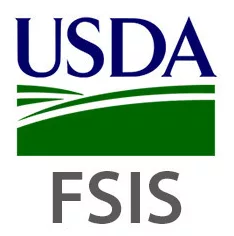Lawmakers Demand More Transparency When Meat Plants Are Linked to Foodborne Outbreaks

Last week, Congresswoman Rosa DeLauro (D-CT) and U.S. Senator Kirsten Gillibrand (D-NY) penned a letter to Agriculture Secretary Sonny Perdue requesting more transparency when it comes to the U.S. Department of Agriculture Food Safety and Inspection Service (USDA FSIS)’s collection of microbiological testing data from slaughterhouses and meat and poultry processing establishments.
The letter was prompted by a current outbreak of Salmonella Dublin that’s been linked to ground beef. That outbreak has been identified in 6 states, sickening 10 people (8 of whom had to be hospitalized) and claiming at least one life.
A single, common supplier of ground beef has not been identified, however, during the investigation, six samples of raw ground beef products tested positive for the outbreak strain. While FSIS does conduct routine testing to measure compliance with Salmonella performance standards, FSIS regulations do not require that meat establishments take any remedial action to protect the public from product that is contaminated with an outbreak strain.
Although no single company has been named in this outbreak, a recall of more than 34,000 pounds of ground beef products were recalled on November 15th by Hanford, CA-based Central Valley Meat Company. FSIS was notified of an investigation of Salmonella Dublin illnesses on September 9, 2019. Working in conjunction with the U.S. Centers for Disease Control and Prevention, and state and local public health partners, FSIS determined that there is a link between ground beef products from Central Valley Meat Co., Inc., and this illness cluster. The traceback investigation indicated that a case-patient consumed ground beef produced by Central Valley Meat Co., Inc.
Here is a snippet regarding Central Valley Meat’s food safety practices directly from their website:
Food Safety is a priority at Central Valley Meat. We work hard to build your trust and confidence that every product follows strict food safety guidelines. Central Valley Meat is committed to delivering the highest quality and safest products.
- Strict sanitation and food safety practices
- We work closely with government regulatory agencies, industry leaders and the scientific community to ensure we utilize “best in class” food safety practices.
- Highly trained Quality Assurance team
- All operations receive continuous USDA inspections
- Utilizing the most up to date food safety technology, testing and certification programs
- BRC (GFSI) Certified
Because USDA FSIS uses whole-genome sequencing as part of their sampling program, this makes it easier to identify links between pathogenic strains found in samples from patients to confirmed cases of foodborne illness. “Those links provide actionable information for companies to reduce food safety risk,” the letter says.
The letter goes on to outline how better transparency on the part of USDA by disclosing more data would lead to many benefits not only for the meat and poultry industry, but for the public as well. You can view DeLauro and Gillibrand’s 3-page letter here.
Looking for quick answers on food safety topics?
Try Ask FSM, our new smart AI search tool.
Ask FSM →








